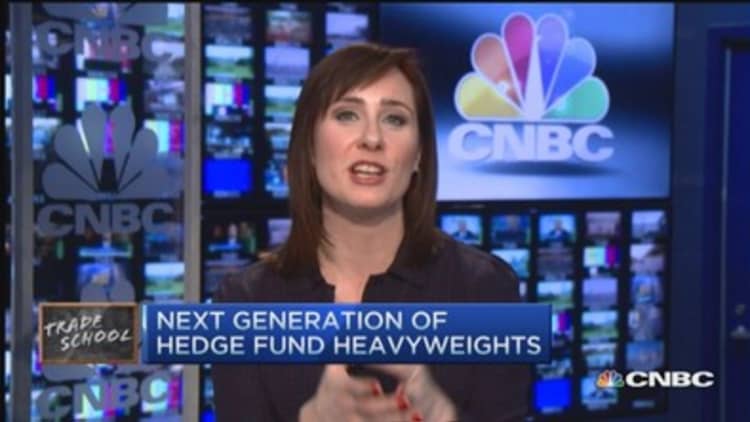If 2014 was the year of the activist, then corporate boards had better really watch out for the rest of 2015.
After two record-setting years in a row, activists—think Carl Icahn, Bill Ackman and Dan Loeb—are back at it again only in even bigger numbers this year, according to a report Thursday from Moody's Investors Service.
There have been 54 cases that fall into the category so far, compared with 43 during the same period in 2014. The full-year total for 2014 was 222 cases in nonfinancial companies, a record that just narrowly beat out the 220 notched in 2013.
While the activists themselves defend their moves as taken to improve corporate governance and maximize return to shareholders, authors of the Moody's report say the collective actions too often focus on short-term gain rather than long-term company health.
The results be good for those with equity stakes but bad for bondholders.

"Shareholder activism is rarely good news for credit investors, and we have seen an uptick this year," Christian Plath, senior analyst for credit policy, said in a statement. "In many cases, shareholder activists pursue short-term initiatives like share buybacks or special dividends, which have negative implications for credit investors."
Read MoreThese young financiers trying to change the world
Indeed, 2014's activism helped push an overall surge in buyback activity.
S&P 500 companies repurchased $564.7 billion of their own shares during the year and $125.8 billion in the fourth quarter, according to FactSet. Apple, the largest corporation in the world by market capitalization, led the way. Dividends per share also grew last year, rising 11.9 percent, with projections of another 8.2 percent growth this year, according to FactSet.
Spurred by Icahn, perhaps the activist king, Apple bought back $57 billion of shares last year, by far the biggest among all S&P 500 companies. IBM was a distant second at $13.4 billion.
Icahn in particular has defended activists, telling CNBC in 2014 that most of the positions he and others like him hold are long-term and that he has invested "billions" in the companies in which he invests.
Read MoreBNY Mellon CEO Hassell has got to go: Activist
General Motors also faced activist pressure from investor Harry Wilson, who dropped his demand for board changes after the company unveiled a $5 billion buyback plan. Other companies, according to Moody's, that face heavy activist pressure include Computer Sciences, MGM Resorts, MSCI and Loeb's full-court press against Sotheby's.
However, Moody's noted that the pressure for buybacks and dividends has decreased a bit, in favor of "more structural, and potentially transformational, changes at target firms."
On balance, activism wasn't terribly profitable for investors who held shares in targeted companies. As a strategy, activism returned just 4.8 percent on average in 2014, according to statistics from HFR that Moody cited. Things could get tougher ahead.
"Surging equity markets and lofty valuations have resulted in a shortage of cheap, undervalued targets," Plath said in the report. "This is important because the core of the activist investing strategy involves trolling for undervalued companies at which to push for changes that will unlock shareholder value. Therefore, the record number of activist cases may begin to dwindle unless the equity markets become more volatile."
The headwinds could result in a shakeout in the activist space, with Moody's expecting the investors "most reasonable in their demands and the most collaborative" as the best bets to survive.






